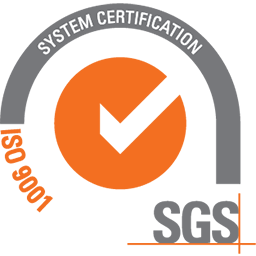Hydrocarbon wash is an innovative cleaning process that uses a mix of isoparaffinic hydrocarbons as solvents.
Hydrocarbons are much less dangerous for the environment than Perchloroethylene and are a more eco-friendly choice than traditional dry-cleaning. Moreover, the solvent for hydrocarbon wash is odourless and above all it has a much lower density than perchloroethylene, thus making this type of cleaning much more delicate.
WHAT GARMENTS CAN BE WASHED WITH HYDROCARBONS?
Hydrocarbon washing is ideal to clean delicate clothes like the ones containing rubber parts, resins, synthetic fabrics, or with particular appliqués, such as fur, suede or buckskin.
Anyway, to understand what garments can be washed with this method, you just need to look for circle symbols on the label: in these cases it is advisable to resort to a specialised laundry to avoid damaging clothes with the classical wash in water.
In the picture below you can see the meaning of the various symbols.
|
|
DO NOT DRY CLEAN |
 |
POSSIBLE DRY CLEANING WITH ALL SOLVENTS |
 |
POSSIBLE DRY CLEANING WITH PERCHLOROETHYLENE |
 |
POSSIBLE DRY CLEANING WITH HYDROCARBONS |
HYDROCARBON MACHINES
Since hydrocarbons are flammable, all machines are closed-circuit and distillation happens with specific processes to avoid danger of flammability.
Apart from that, the scheme of hydrocarbon machines is quite similar to the one of perchloroethylene machines.
Let’s compare the features of hydrocarbons and perchloroethylene:
|
Feature |
Hydrocarbon |
Perchloroethylene |
|
Density (g/lt) |
0,78 |
1,62 |
|
Steam pressure at 20°C (hPa) |
1 |
18,9 |
|
Boiling point (°C) |
180-210 |
121,1 |
|
molecular weight (g/mol) |
150-166 |
166 |
|
Surface tension (mN/m) at 25°C |
25 |
32 |
|
Kauri-Butanol index |
25 |
90 |
|
Lower limit of explosion at 20°C |
Flammable 0,7% vol |
Non flammable |
PROS & CONS OF HYDROCARBON SOLVENT
PROS:
• It has a lower density than perchloroethylene. Therefore it carries out a gentler action on fibres by reducing the movement during the wash. IDEAL for delicate garments and appliqués.
• Less aggressive solvent on fabrics and in particular on plastic parts.
• Less dangerous for the environment and for the operators.
• It removes less lanolin from woollen clothes, thus leaving them softer.
CONS:
• Lower degreasing power than perchloroethylene.
• “Delicate” solvent. It accepts less the presence of water in detergents and garments if compared to perchloroethylene.
• Flammable solvent
DR. CONEDERA’S ADVICE
Hydrocarbon wash has a lower Kauri-Butanol index than perchloroethylene. Therefore it is less degreasing than perchloroethylene and it needs the addition of detergents and the action of pre-brushing.
These specific products have to be studied and developed precisely for this system: they have to be totally compatible with this solvent, free from water and very concentrated.
Tintolav proposes 4 highly effective professional products for hydrocarbon cleaning:
 |
SEPISOLHydrocarbon solvent |
 |
PRECARBONSpotting agent for hydrocarbon wash.
Size: 2 x 5 litres |
 |
INCARBONDetergent for washing in hydrocarbon solvent with antistatic and deodorising effect.
Size: 2 x 5 litres |
 |
Essence for dry cleaning (with either perchloroethylene or hydrocarbons) with a floral fragrance.
Size: 1 litre |





















